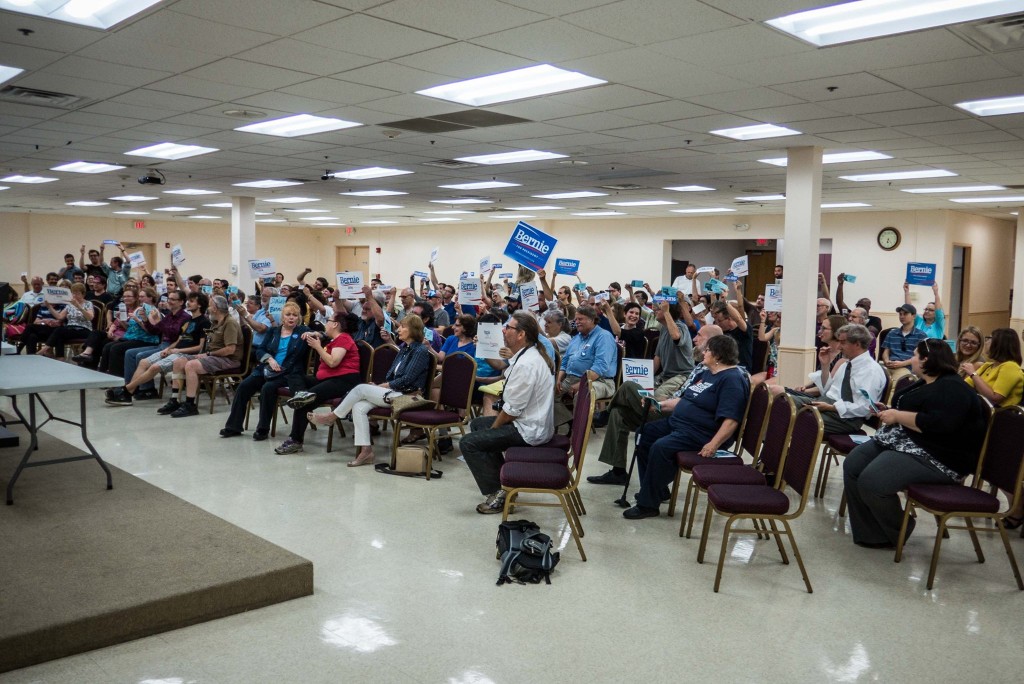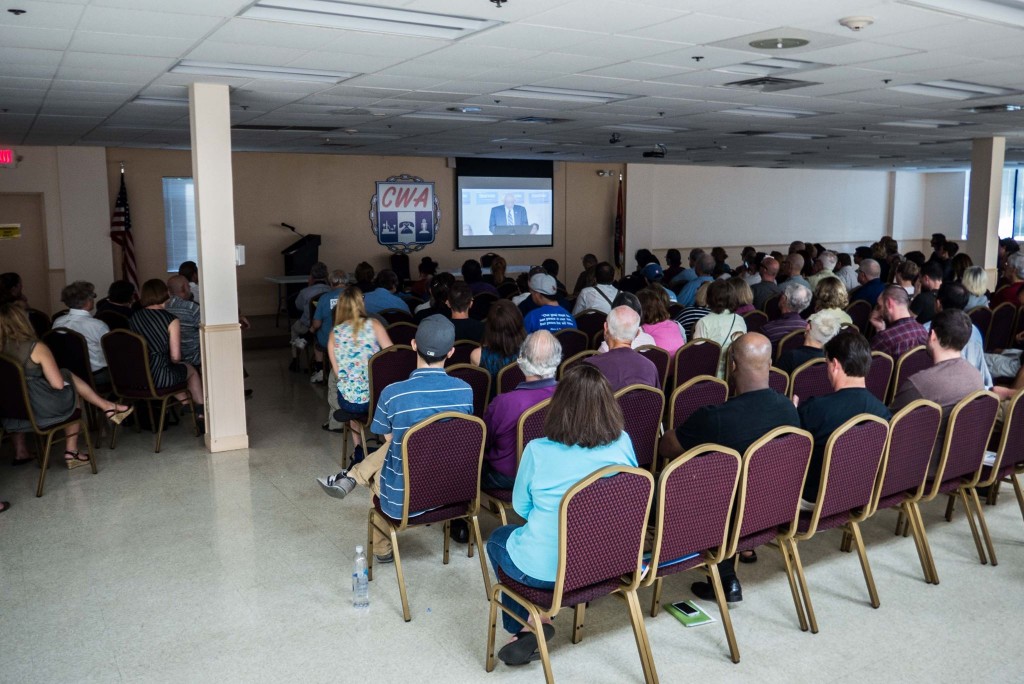Bernie Sanders’ House Parties
Earlier this week, I attended an organizational meeting for those seeking to do volunteer work for the presidential campaign of Bernie Sanders. The meeting was held at the office of the Communications Workers of America in west St. Louis County (there were 8 other simultaneous meetings in St. Louis along, and thousands of these meetings nationwide. As you can see, more than 100 people showed up to volunteer at my location. Sanders spoke via video to all of those gathered together tonight. There are reports that 100,000 people attended Sanders' House Parties across the U.S. this week.
Anyone else interested in working for Sanders' campaign can do so by visiting his website.


